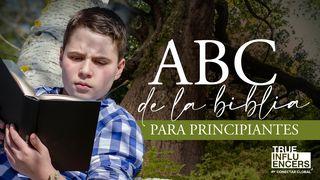Joseph: A Story of Reconciliation and Emotional HealingMuestra

The famine arrives. And it comes with a vengeance. People travel across the region to buy grain. There’s plenty of it in Egypt, thanks to Joseph’s leadership. One thing is clear: the famine hasn’t just affected Egypt. It’s crippled the whole region.
In an agrarian society—groups of people whose livelihoods center around farmland and depend upon a plentiful harvest each year in order to survive—a famine is about the worst natural disaster there can be. While Joseph’s family members are nomadic shepherds, they too depend on the health of the fields in which their livestock grazes.
When Jacob sends his sons to Egypt to buy grain, it’s the first time Joseph has seen them in years. They bow down as a sign of respect to the governor of Egypt, not recognizing him as their brother. Joseph immediately recalls his dreams back in Canaan: the dreams in which his brothers bowed down to him, dreams of himself in a position of prestige and power. It’s all coming true before his eyes.
Something in Joseph—maybe the deep, ever-present burden of his estranged relationships with his brothers—starts to stir. He has everything he needs and wants, except the family he’s lost. Now is a chance to reconcile with them. But have they changed? Can he trust them?
It’s clear that seeing his family again has a visceral impact on Joseph. Several times, he has to step away from his brothers to weep and regain his composure. He’s not ready to reveal his identity to them yet, until he tests them. He keeps himself guarded until he knows whether the long years have brought about the change in their hearts he hopes is there.
Many of us understand forgiveness as a concept, but it’s harder to understand in practice. Is forgiveness simply about forgetting all wrongs done against us? Is forgiveness about showing mercy, yet keeping the memory of the pain? At what point do we draw the line to protect ourselves emotionally? What does forgiveness actually require of us?
Every situation is different and most of us won’t be in a position to use Joseph’s methods of testing character. But what we can do is protect our hearts, while, at the same time, doing right by the people who have wronged us.
Joseph takes his time revealing his true identity to his brothers. They’ve come to him in need. They’ve come to him at a disadvantage—not just because he has what they need, but because he is in a rare position of power. And power differentials tend to motivate people to present only the best parts of themselves. These are the barriers Joseph’s test must dismantle.
But all along, he still cares for his brothers, while hiding his strong emotions temporarily. We get the impression that in his own heart, Joseph holds no bitterness, and he wants to embrace them and restore their relationships. But he’s careful and he’s patient.
The truth is, we can’t make those who have hurt us sorry for what they’ve done. We can’t force reconciliation, even if we’re the victims. Joseph knows this. He knows that if his brothers haven’t already changed, he can’t make them change.
But, what he can do is take care of them from a distance until he sees whether they’ve changed. He can do right by them in providing what they need to survive the famine. And he can let time reveal what’s truly in their hearts.
REFLECT
What people or situations come to mind when you think about forgiveness? Who have you hoped and prayed would change? How is God calling you to do right by those who have hurt you, and what might it look like for you to guard your heart along the way?
Escritura
Acerca de este Plan

Like Joseph’s story, our own stories contain places of brokenness and experiences of rejection, jealousy, injustice, and grief. We also find glimpses of hope, perseverance, forgiveness, and unexpected blessing. This plan will guide you in an honest exploration of your own experiences and how they’ve shaped you. You’ll watch the God of Israel miraculously reconcile and restore Joseph and his family, while you reflect on your own journey of healing.
More
Planes relacionados

1 Tesalonicenses: Modelos a imitar

Disciplinas Espirituales

ABC De La Oración ... Para Principiantes.

La Gracia. 7 Claves Para Vivir en Plenitud.

Chispas De Aquí Y De Allá

ABC De La Biblia Para Principiantes

Y...¡Adoremos!

Que El Mundo Crea
